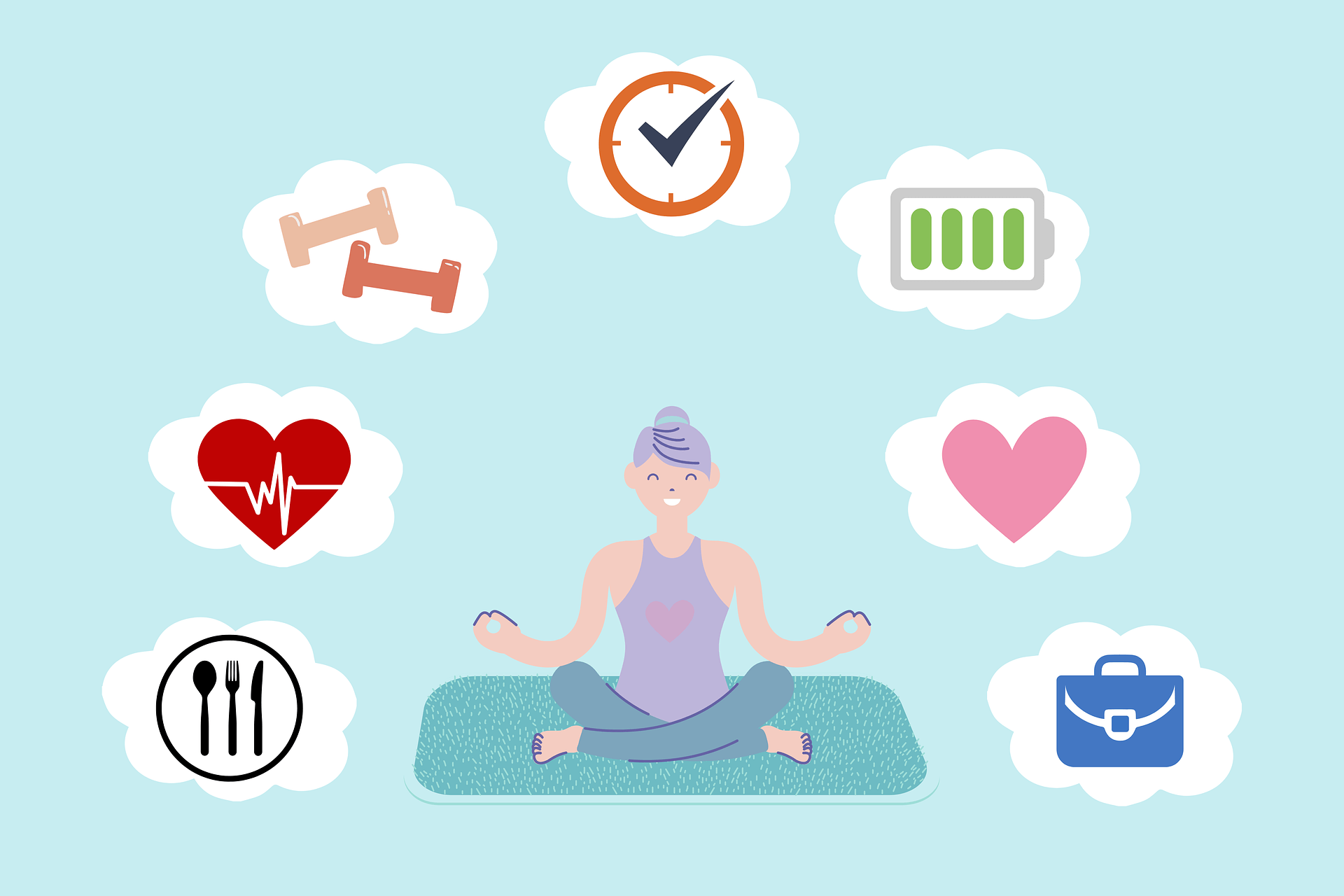
Public speaking is often an enriching career. There is nothing like the thrill of standing up in front of others around the country or the world and seeing faces light up at what you’re saying.
However, public speaking and travel can also get mentally and physically exhausting. Let’s talk about your mental health suffering during public speaking.
How Speaking at Events Can Impact Your Mental Health
Summarize with
Table of contents
Unfortunately, when your mental health is suffering, so too can your ability to deliver powerful speeches and memorable events. You can’t wow others when your mind and body can’t keep up with your needs. As such, speakers need to pay close attention to their bodies and needs while traveling. If you start recognizing signs of burnout and mental exhaustion, it may be time to take a break or change your routine.
In this article, we’ll look at how traveling and public speaking can impact your mental health, how to recognize signs that you’re struggling with, and tips on how to improve your well-being as a public speaker.
Public speaking can lead to burnout and mental health issues like any other career. We live in a demanding world, but it’s important not to let demands override your basic needs.
As a public speaker, however, it’s easier to lose sight of your needs when you are caught up in the excitement of planning speeches, traveling, and changing the lives of others. Public speaking is a very time-consuming career.
You are constantly on the go, planning and prepping for new events and speeches. When you don’t give yourself a break, it’s easy to dismiss or overlook personal needs. Unfortunately, the second you do get a moment to yourself, all of that stress, anxiety, and the needs you have overlooked can come crashing down on you. These crashes or severe burnout phases can often happen at the most inopportune times.
As a public speaker, you might be dedicated to giving your audience a hundred percent, but you also have to provide yourself with a hundred percent. The saying that you can’t help others if you don’t first help yourself is highly relevant in this situation. There is only so much you have to give. If you never fill your cup, you will run out.
In other words, if you over-commit and solely focus on pleasing others, you will inevitably run into the ground. Once your body and mind start giving up, the only way to recover is to take a break — potentially a very long one. If you try to push through it, you will only worsen it, and healing will take much longer.
It is crucial to recognize the signs of burnout or that your mental health is struggling before it reaches the point of boiling over. If you address your needs early on, you can prevent breakdowns and more efficiently manage your stress as you go.
Signs of mental health stress and burnout can include
- Constant exhaustion;
- Insomnia;
- Trouble focusing;
- Lack of motivation;
- Dreading work regularly;
- Feeling like nothing you do is working;
- Decreased satisfaction in things you once enjoyed;
- Frequent illness;
- Headaches and muscle pains;
- Change in appetite;
- Feeling like a failure;
- Isolating yourself from others.
If you notice any of these signs, don’t beat yourself up for them. It’s just an indicator that you should take a step back and evaluate your schedule and coping strategies.
Tips for preventing burnout of your mental health as a public speaker

Luckily, there are ways to prevent burnout. You can still have a successful career as a public speaker and meet your personal needs. There is no reason why the two should be considered exclusive. Your mental well-being is just as important as your audience’s satisfaction, if not more so.
Thoroughly prep ahead of time
One of the biggest mistakes public speakers make is a lack of preparation. It is not just for obvious reasons, such as it resulting in a lackluster speech and event, but because it can also increase your stress levels.
No matter how good you are at your job, you should never put aside preparation and try to wing it. It likely adds unnecessary stress even if you are good at winging it. You have to work harder on the spot or rush to prepare in a limited amount of time, which increases stress and will impact your mental health over time.
Thus, always give yourself enough time to prep and rehearse ahead of time.
Create more memorable events
Focusing on making your events more memorable can also alleviate stress in the long run. For example, if you constantly give subpar speeches, you might always carry the constant feeling that you need to do better. Taking those feelings with you can wear your mental health down over time.
In contrast, if you work harder ahead of time to give excellent talks, you won’t feel like you constantly need to do better. Making your speeches more memorable will not only please your audience more, but it will please you more. The more you do this, the more satisfied you will feel with your work, which will help you avoid negative feelings that can impact your mental health.
Get enough sleep, eat right, and exercise regularly
Treating your body right is also essential to maintaining your mental well-being. Traveling all the time for events can take a physical toll. Make sure you are sleeping enough, eating healthy foods, and moving your body to stay mentally and physically strong.
Try calming and relaxing activities
Try some pre- and post-speech activities that help you calm down and relax. For example, meditating the night before a speech or the morning of can significantly reduce stress and help you focus better during your speech.
You can also try yoga, swimming, reading, or walking while you are traveling to help you take your mind off your speech. Of course, these are just some examples, but it’s ultimately up to you to decide what activities help you relax and alleviate the stress you may feel while working as a public speaker.
Take a break
It would be best to give yourself a break now and then. Public speakers are always on the go; while this might feel exhilarating, it can wear you down.
Giving yourself permission to stop and take a break when needed is essential. Part of this is also recognizing when you need a break instead of constantly telling yourself you’re okay in some effort to prove that you aren’t weak. Taking breaks isn’t soft and vital to your mental health.
Conduct more webinars
Finally, if constant travel is mentally and physically tiring, consider embracing more digital, remote-speaking events. Webinars can be as thrilling and effective as in-person events, significantly when you invest real effort into engaging them.
Preparing for a webinar can significantly reduce stress compared to prepping and traveling for a live event. Furthermore, commuting is terrible for your physical and mental health. Webinars can help reduce the time you need to be on the road. You can create a webinar in a few minutes from your device with MyOwnConference. All you need is good internet and a great mood.
Final thoughts
Understandably, your audience and their satisfaction might seem like your number one priority as a public speaker, but it is not. If you are not satisfied, you cannot expect to please others. This means that your own happiness and well-being should come first. Only when you are healthy in mind and body can you perform your best and reach success. Do not forget to visit our website for more information about mental health.
FAQ
Constant travel, speaking engagements and changing environments can lead to exhaustion, difficulty focusing and burnout if you neglect your own needs.
Some early signs include persistent tiredness, trouble sleeping, lack of motivation, decreased enjoyment of things you used to like and frequent illness.
Adequate preparation reduces last-minute stress and rushing which otherwise increases mental strain and makes burnout more likely.
While on the road your body and mind are under extra stress so maintaining good sleep, healthy food and movement supports your mental well-being and physical strength.
Consider switching to or increasing remote speaking engagements such as webinars so you reduce travel time and give yourself more space to recover.

Noah Rue is a journalist and content writer, fascinated with the intersection between global health, personal wellness, and modern technology. When he isn’t searching out his next great writing opportunity, Noah likes to shut off his devices and head to the mountains to disconnect.











